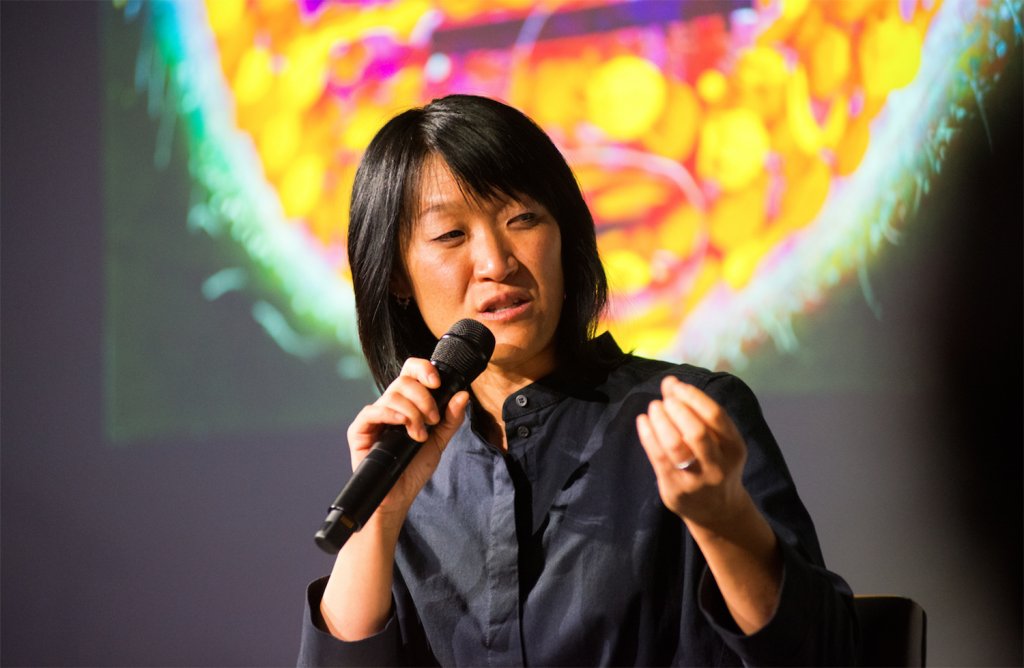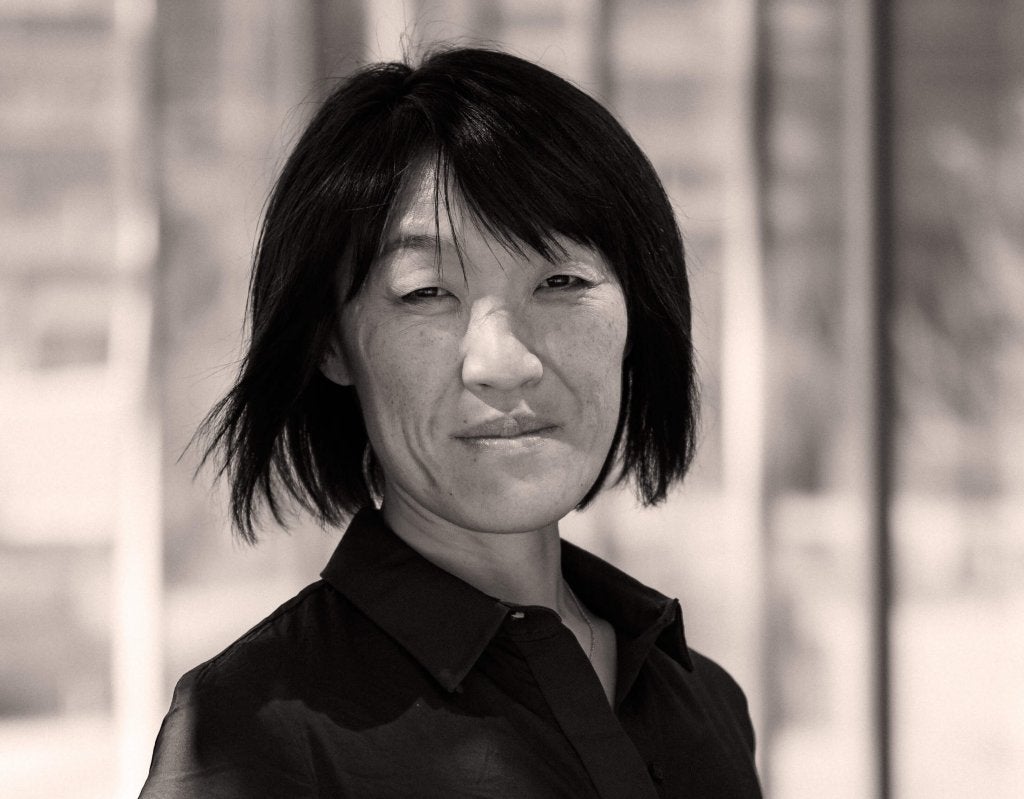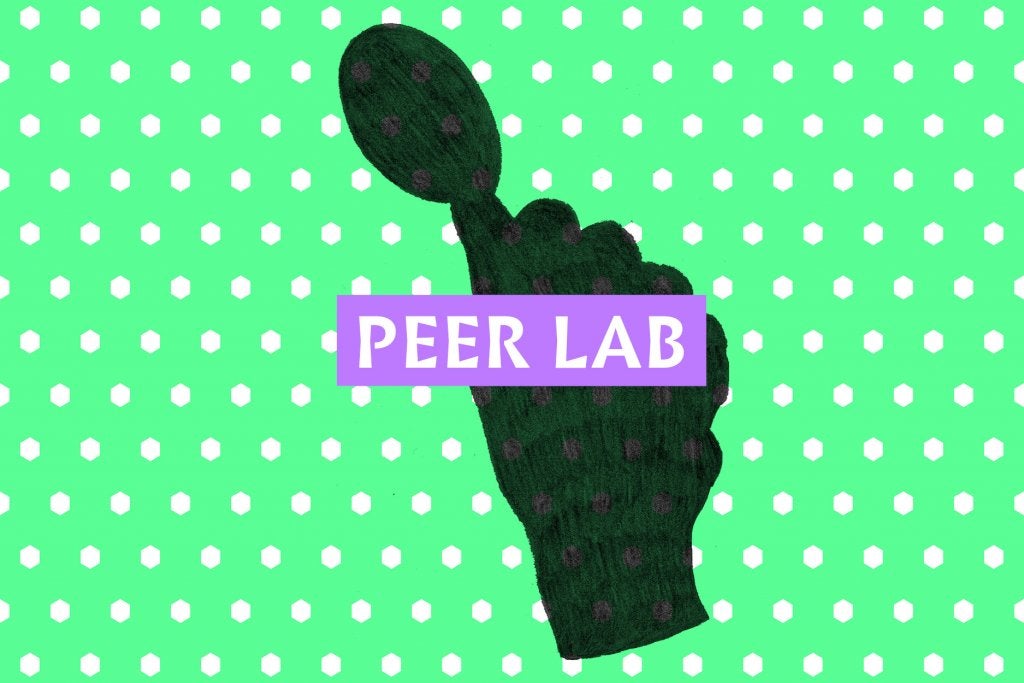What is the taste of your favorite song?
A new lab at the UCLA Herb Alpert School of Music explores a range of questions like that one, rejecting the premise of music as merely a sonic experience.
After opening in the summer of 2020, the Practice-based Experimental Epistemology Research Lab — or PEER Lab — is preparing to celebrate its launch with a series of free public workshops. The first event is scheduled for April 29, with others to be held on the final Thursday of the month throughout the spring. Audiences will be invited to experience music using all of their senses and reconsider how their senses guide their experiences. (Learn more and register for the PEER Lab events)
The PEER Lab is led by UCLA musicologist and vocalist Nina Eidsheim, whose research centers on the concept of music as an event rather than as an object.
Throughout her career, Eidsheim has been inspired by the idea of sound being transduced through different materials — and how those materials shape and define how we experience music.
“We think that we can know a sound, but the energy that listener’s experience as sound is unique to the material that transmits it, ” Eidsheim said. “For example, sound travels about five times faster underwater. And when we’re immersed in water, we hear sound mostly through bone transmission, as opposed to through our eardrums as is the case when we hear sound through air.”
“I believe in developing ways of writing about music that capture the experience of listening to music, of being filled and transformed by a song,” said Eidsheim, “because experiencing music is literally the process of music vibrating in and through us. Our bodies are literally the conduit of that vibration, or sound.”
“So, when we say that we hear a melody that goes up or that one note is higher than another, we are using the western concept of notation to describe music vibrating through us.”
Similar to other multisensory experiences such as eating, where our tongue is the conduit for taste—the Lab develops new ways to better capture the sense of being filled by music.
This spring, the Lab will host two Soundtrack to Creativity events on April 29th and May 27th. Authors and activists such as Shana Redmond and Daphne Brooks will share what music has informed their forthcoming books. On June 24th, Nina Eidsheim will lead a workshop on multisensory writing about music. PEER Lab events are free and open to the public.
On an ongoing basis, the PEER Lab will conduct research to better understand how a culture recreates through music their idea of what is human, and how we have been encultured to engage with music as a single sensory experience.
“Because theory and language around music has not taken multisensory experience into account, it is ill-equipped to capture humans’ relation to listening and sound,” Eidsheim said. “The PEER Lab seeks to correct this through dialogue and experimentation.”
PEER Lab members are already collaborating — online thus far because of the COVID-19 pandemic — to develop experiments that can be conducted remotely. Among the research projects they’re pursuing:
- Sensing home. Participants document their multisensory experiences with a focus on life during COVID-19 and through stories that have been overlooked by academia. The study considers questions such as: What are the daily actions we carry out to feel a sense of home? Which sounds are important? How are these actions shaped by a community and structural circumstance?
- Music beyond metaphor. This project maps the ways in which western music has been shaped by dominant metaphors such as the musical score and the “composer.” These concepts affect not only music theory, but also dictate musical imagination, performance practice and sensory access to music. Part of the research of this group is to show how internalized these metaphors have become, and to articulate unrecognized experiences of music.
- Practice-based research in context and action. Practice-based-research as a methodology is a relatively new endeavor. Because its origin is scattered across different disciplines and continents, the research group is collecting practice-based scholarship and art and making it available through a database. Unlike many university library resources, this database will be accessible to the public, both for use and for submitting works to be included. The project will also build community by bringing together academics, artists, educators, and activists, through workshops and symposia.
The PEER Lab is funded by the UCLA Herb Alpert School of Music, the UCLA College’s Division of Humanities, and the Office of the Vice Chancellor for Research.
Eileen Strempel, dean of the School of Music, said the lab’s pioneering approach could serve as a national model. The Lab is already collaborating with researchers across UCLA, such as professors Michelle Caswell (Information Studies) and Peter Sellars (World Arts and Culture), and at other University of California campuses, such as professors Jessica Bissett Perea (UC Davis Native American Studies), George Lipsitz (UC Santa Barbara, Black Studies), Deborah Wong (UC Riverside, Ethnomusicology), and internationally, with the Research Centre for Music, Sound, and Society in Canada (Carleton University) and the Centre for Inter-Asia Research (Ahmedabad University, India).
“The innovative research being undertaken by the PEER Lab exemplifies the School of Music’s unique intersection of scholarship and musical expression,” Strempel said. “By asking us to reconsider our senses, the lab invites us to question our assumptions about music and the world we share.”





